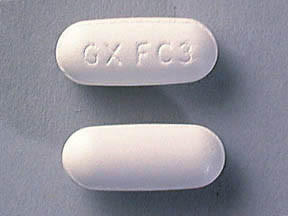LAMIVUDINE/ZIDOVUDINE - ORAL
PHONETIC PRONUNCIATION: (la-MIV-ue-deen/zye-DOE-vue-deen)
COMMON BRAND NAME(S): Combivir
GENERIC NAME(S): lamivudine/zidovudine
Uses
USES: This product contains 2 drugs: lamivudine and zidovudine. It is used with other HIV medications to help control HIV infection. It helps to decrease the amount of HIV in your body so your immune system can work better. This lowers your chance of getting HIV complications (such as new infections, cancer) and improves your quality of life. Both lamivudine and zidovudine belong to a class of drugs known as nucleoside reverse transcriptase inhibitors (NRTIs). Lamivudine/zidovudine is not a cure for HIV infection. To decrease your risk of spreading HIV disease to others, do all of the following: (1) continue to take all HIV medications exactly as prescribed by your doctor, (2) always use an effective barrier method (latex or polyurethane condoms/dental dams) during all sexual activity, and (3) do not share personal items (such as needles/syringes, toothbrushes, and razors) that may have contacted blood or other body fluids. Consult your doctor or pharmacist for more details.
How to use LAMIVUDINE/ZIDOVUDINE - ORAL
HOW TO USE: Read the Patient Information Leaflet if available from your pharmacist before you start taking lamivudine/zidovudine, and each time you get a refill. If you have any questions, consult your doctor or pharmacist. Take this medication by mouth with or without food, usually 2 times daily or as directed by your doctor. Take this medication with a full glass of water (8 ounces/240 milliliters) unless your doctor directs you otherwise. Because this combination product has fixed doses of lamivudine and zidovudine, it should only be used if your doctor has determined that the doses of both medications in this product are right for you. This product is not to be used in children weighing less than 30 kilograms (66 pounds). It is very important to continue taking this medication (and other HIV medications) exactly as prescribed by your doctor. Do not skip any doses. Do not increase your dose, take this drug more often than prescribed, or stop taking it (or other HIV medicines) even for a short time unless directed to do so by your doctor. Skipping or changing your dose without approval from your doctor may cause the amount of virus to increase, make the infection more difficult to treat (resistant), or worsen side effects. For the best effect, take this medication at evenly spaced times. To help you remember, take this medication at the same times every day.
Side Effects
Precautions
Interactions
Overdose
Images

- color
- white
- shape
- oblong
- imprint
- LU LU, Y01 Y01
Reviews
Faq for LAMIVUDINE/ZIDOVUDINE - ORAL
Lamivudine/zidovudine is a combination medication used in the treatment of HIV infection. It contains two different antiviral drugs, lamivudine and zidovudine, which work together to slow the progression of the virus.
Lamivudine/zidovudine works by inhibiting the replication of the HIV virus in the body. Lamivudine prevents the virus from multiplying, while zidovudine interferes with the virus's ability to insert itself into the DNA of human cells.
Common side effects of lamivudine/zidovudine may include headache, nausea, vomiting, loss of appetite, fatigue, weakness, and dizziness. These side effects are usually mild and go away on their own. However, if they persist or worsen, it is important to inform your healthcare provider.
Lamivudine/zidovudine is taken orally, usually twice a day or as prescribed by your doctor. It can be taken with or without food. It is important to follow the dosage instructions provided by your healthcare professional.
Lamivudine/zidovudine cannot cure HIV infection, but it can help manage the virus and slow down its progression. It is important to continue taking the medication as prescribed, even if you feel well, to maintain control over the virus and prevent the development of drug-resistant strains.
Lamivudine/zidovudine may interact with other medications, including certain antibiotics, antivirals, and drugs that affect the liver and kidneys. It is important to inform your healthcare provider about all the medications you are taking to avoid any potential interactions.
Lamivudine/zidovudine is generally considered safe to use during pregnancy. It can help reduce the risk of transmitting HIV from the mother to the baby. However, it is essential to consult with your doctor before starting or continuing any medication during pregnancy.
The duration of treatment with lamivudine/zidovudine will vary depending on individual circumstances and the progression of HIV infection. It is usually a lifelong therapy, and discontinuing the medication without medical guidance may lead to the worsening of the infection.
If you miss a dose of lamivudine/zidovudine, take it as soon as you remember. However, if it is almost time for your next scheduled dose, skip the missed dose and continue with your regular dosing schedule. Do not take a double dose to make up for the missed one.
Warning
WARNING: Zidovudine, one of the medications in this product, can decrease bone marrow function, which may lead to low numbers of red and white blood cells. A low number of red blood cells can lead to anemia. A low number of white blood cells can decrease your body's ability to fight serious, life-threatening infections. These serious side effects occur more frequently in people with advanced HIV disease (AIDS). Seek immediate medical attention if you develop any signs of anemia (such as unusual tiredness, fast breathing, pale skin, fast heartbeat) or signs of infection (such as fever, chills, cough, persistent sore throat). Your doctor will check your blood cell counts while you are taking this medication to decrease the risk of these side effects. Zidovudine may also cause muscle problems. Seek immediate medical attention if you develop signs of muscle problems (such as wasting or decrease in muscle size, weight loss, muscle weakness/pain/tenderness). Rarely, lamivudine and zidovudine have caused severe (sometimes fatal) liver problems and a certain metabolic problem (lactic acidosis). Tell your doctor right away if you develop symptoms of liver problems (such as persistent nausea, vomiting, stomach/abdominal pain, pale stools, dark urine, yellowing eyes/skin, unusual tiredness), or of lactic acidosis (such as stomach discomfort, nausea, vomiting, fast/difficult breathing, drowsiness, muscle pain, weakness, cold skin). These serious side effects may occur more often in women and obese patients. If you have hepatitis B infection and HIV, you may have a serious worsening of hepatitis symptoms if you stop taking lamivudine. Talk with your doctor before stopping this medication. Your doctor will monitor liver tests for several months after you stop lamivudine. Tell your doctor right away if you develop symptoms of worsening liver problems.
Disclaimer
IMPORTANT: HOW TO USE THIS INFORMATION: This is a summary and does NOT have all possible information about this product. This information does not assure that this product is safe, effective, or appropriate for you. This information is not individual medical advice and does not substitute for the advice of your health care professional. Always ask your health care professional for complete information about this product and your specific health needs.



No Reviews Yet